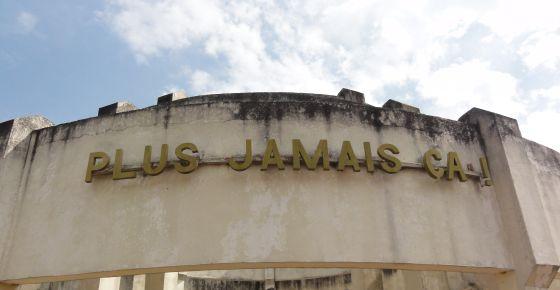Fostering Pluralistic Memories and Collective Resilience in Fragile Transitional Justice Processes

The project aims to study the processes of collective remembering in the context of three fragile societies that have been involved in repeated rounds of communal violence over decades, in Sri Lanka, Burundi, and the Palestinian territories. It is based on the idea that open expression and circulation of diverse memories of conflicts can foster political tolerance and make communities more resilient when faced with critical events, such as violent incidents or political provocations, which are otherwise likely to undermine or disrupt peace processes.
About the project
Background
Open expression and circulation of diverse memories of conflicts can foster political tolerance and make communities more resilient when faced with critical events, such as violent incidents or political provocations, which are otherwise likely to undermine or disrupt peace processes. But common truth and reconciliation procedures can be ineffective or even counter-productive when implemented in volatile contexts of societies affected by protracted conflict.
Objectives
The Pluralistic Memories Project (PMP) aims to study the processes of collective remembering in the context of societies marked by decades of collective violence and fragile political institutions in Sri Lanka, Burundi and Palestine and to analyse processes of dealing with the past without assuming that a search for historical consensus is always present or always desirable. We intend to explore the constructive potential of questioning certainties about the past, and to study how the acknowledgment of a diversity of experiences can facilitate opportunities for communities to build social cohesion on foundations other than collectively unchallenged truths about the past.
Relevance
The project contributes to the development of an approach to gathering testimonies that does not require ideal circumstances, provides safe spaces for those who testify, and is embedded into a larger research and dissemination design intended to facilitate and assess the spill-over effects that are critical to the dynamics of social change.
Highlights and most important results
A broad range of individual testimonies collected within PMP display how conflict-induced collective shocks, like mass expulsion or ethnic riots, transform, create, or freeze collective identities. At the same time, they show that rich diversity in conflict-related memories surfaces within the safe social spaces that can be created in particular interview settings. When credibly granted confidentiality and interviewed in an emphatic manner, people tend to express conflict narratives that are more multi-layered and more complex than those available in public spaces. The collected testimonies highlight that stories of conflict-induced suffering tend to co-exist with stories of resilience during the conflict and with stories that question the logic of the conflict, the sides it defines, and the actors it assumes. Representative surveys using vignettes derived from these testimonies allow studying the frequency, resonance, and recognition of different types of memories in a larger population. In Sri Lanka, the resulting findings show that respondents who report having heard about events in relation with a broader range of presented vignettes display significantly stronger support for inclusive policies promoting minority rights, reconciliation at a community level, and implementation of controversial transitional justice mechanisms, such as a truth commission or a war crimes tribunal. More detailed analyses further show that different communication channels produce different effects and that perceived social norms play a critical role in the process: knowing about multiple perspectives leads to support for policies of redress and reconciliation only to the extent that it is related to a perception that other community members are ready to hear and recognise these multiple stories. In Palestine, the combination of testimonies and survey research document the impact of inequality in the context of the life under occupation. The findings show how collective exposure to asymmetric violence is toxic for both individuals and communities, but also provide insights into how memories of past instances of community resilience function as inspiring resources and sources of empowerment for communities in the present. Finally, local community workshops allow exploring how safe social spaces for sharing memories can be broadened beyond private interpersonal communication, and how discussions within such an extended social space can have an empowering impact on local communities, and stimulate new dialogues between people from different backgrounds or different generations.
Geographic scope
- Burundi
- Palestinian Territory
- Sri Lanka
Project website and links to P3
- Link to project website .
- Links to project phase
) and to project phase
) on SNSF research database P3.
